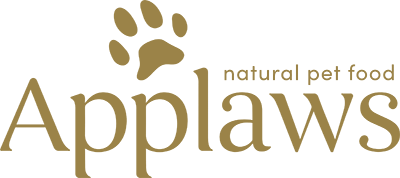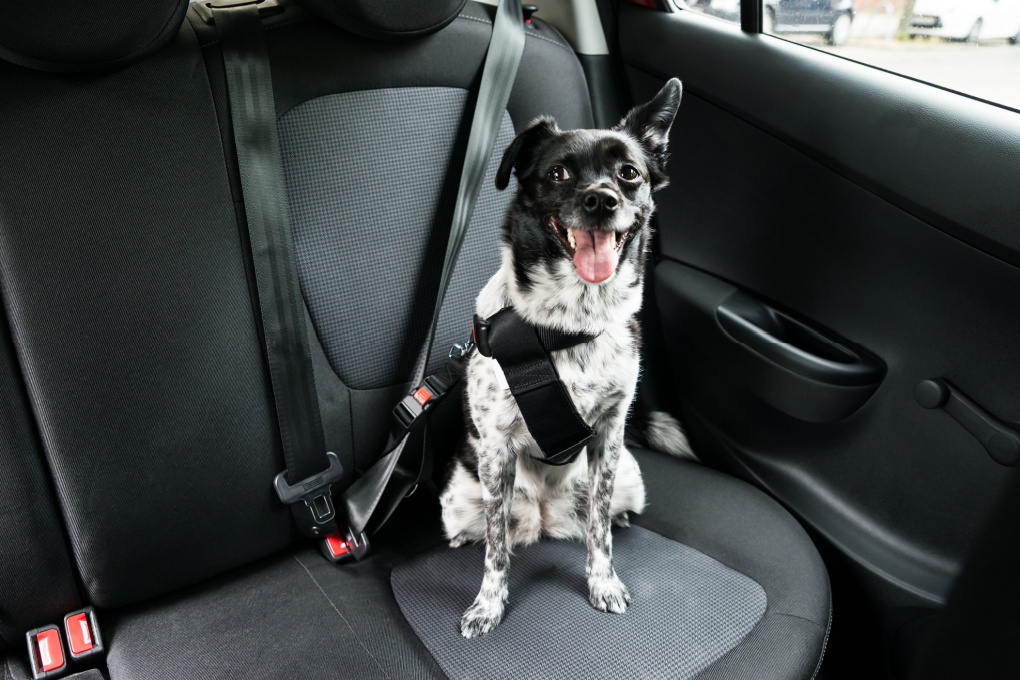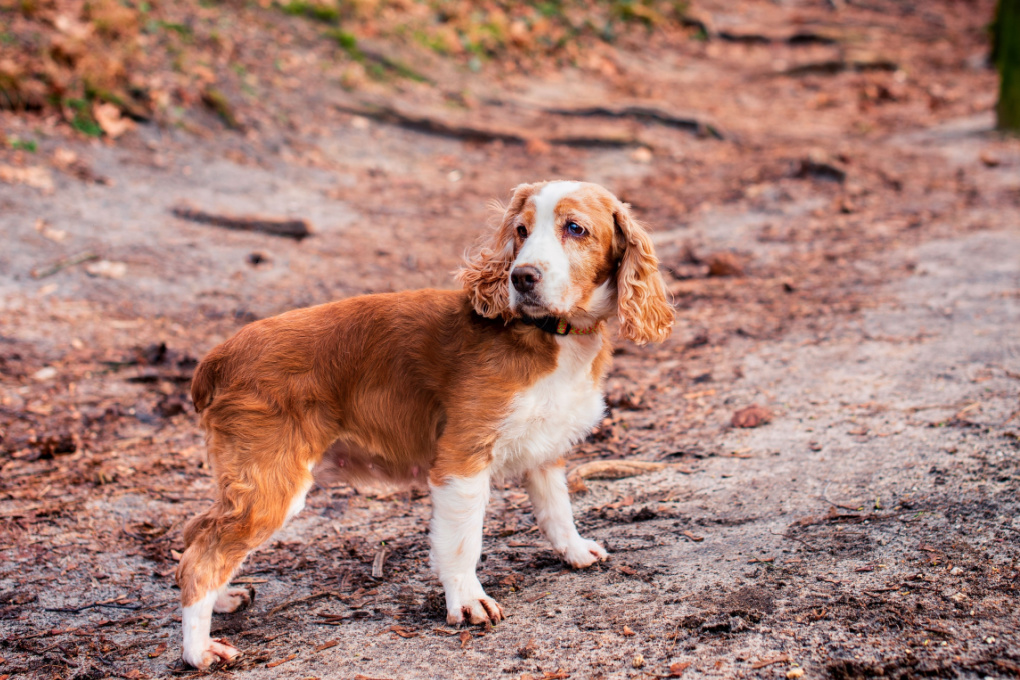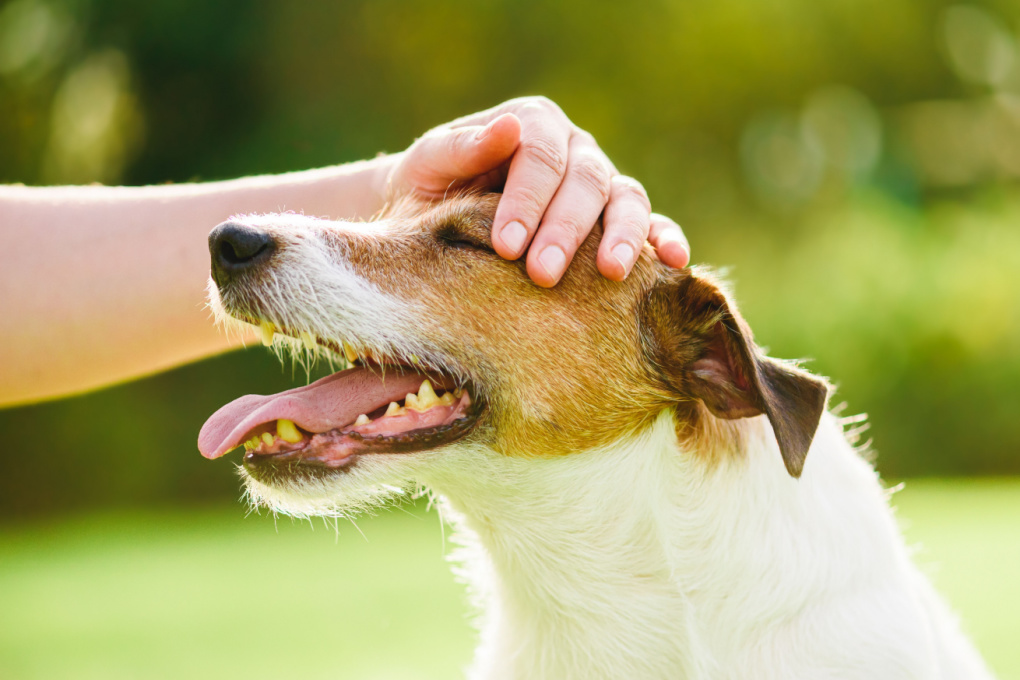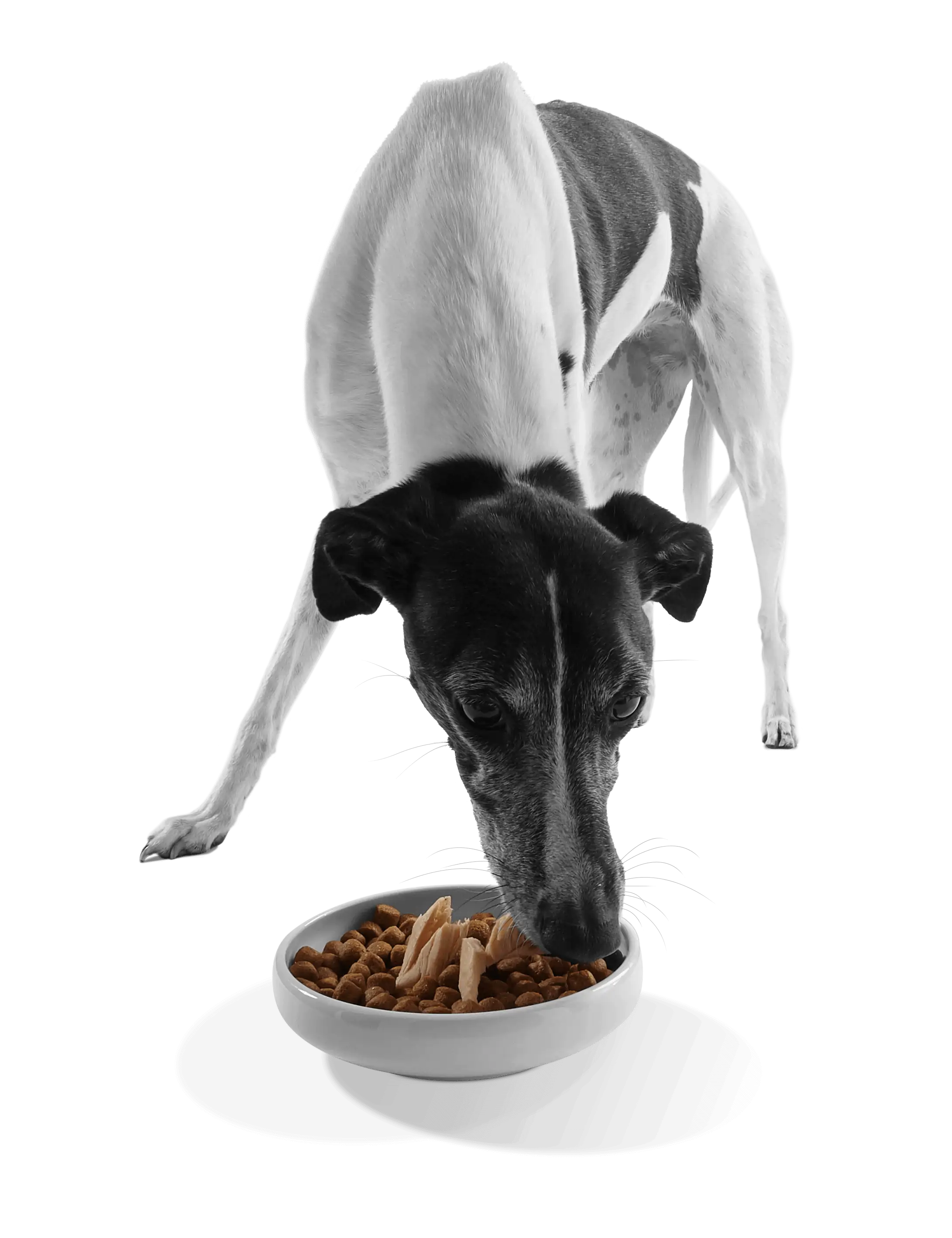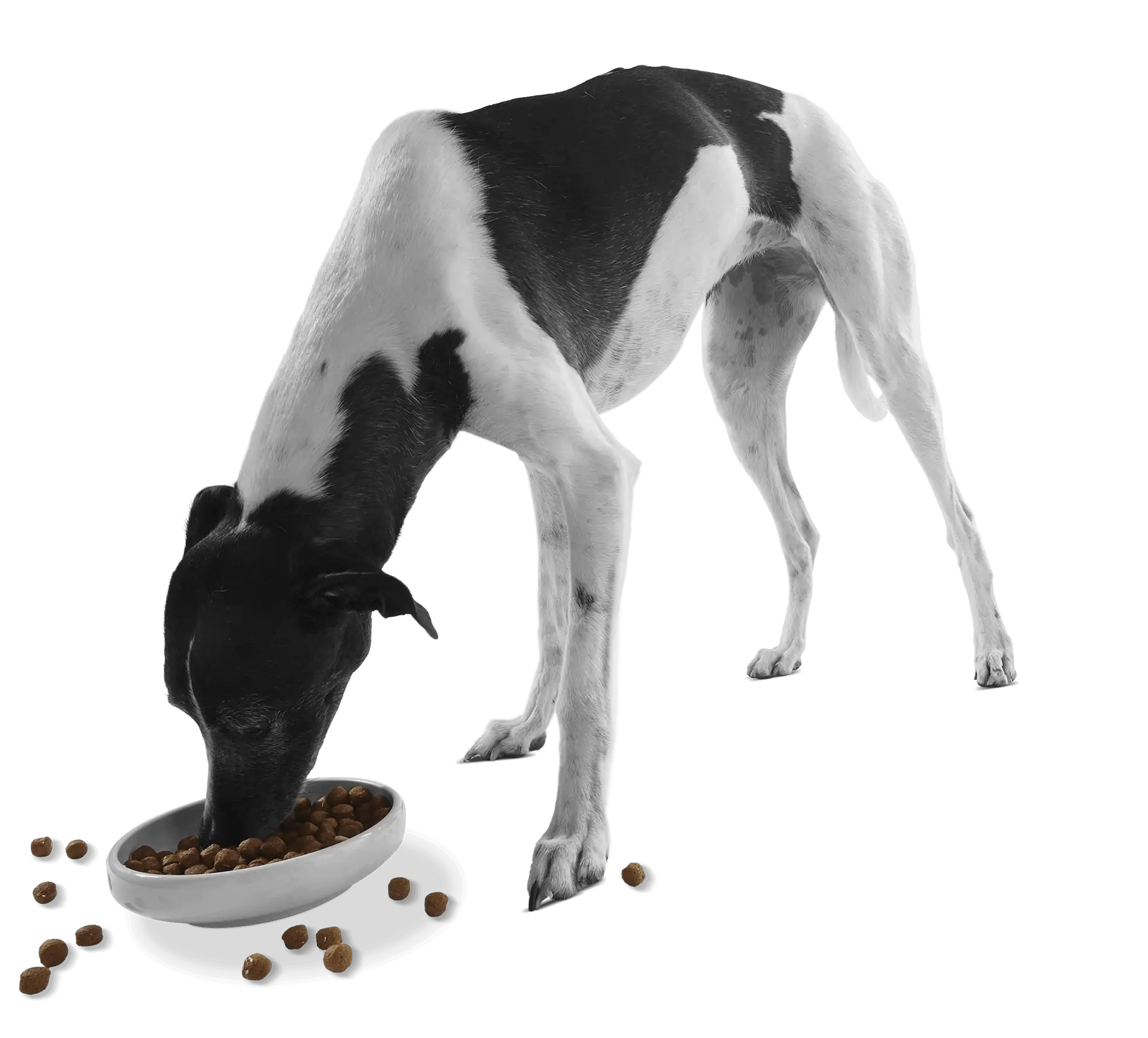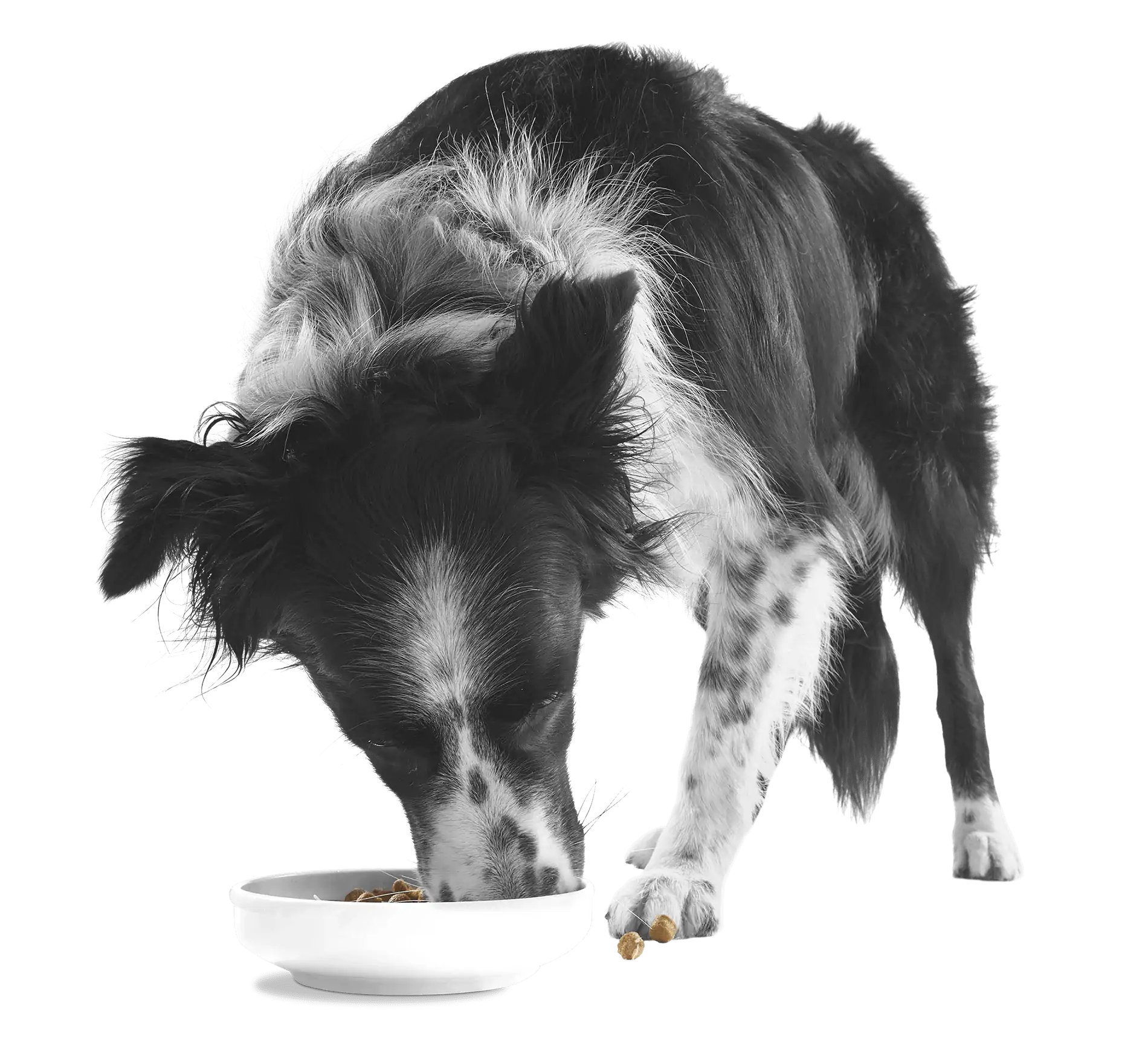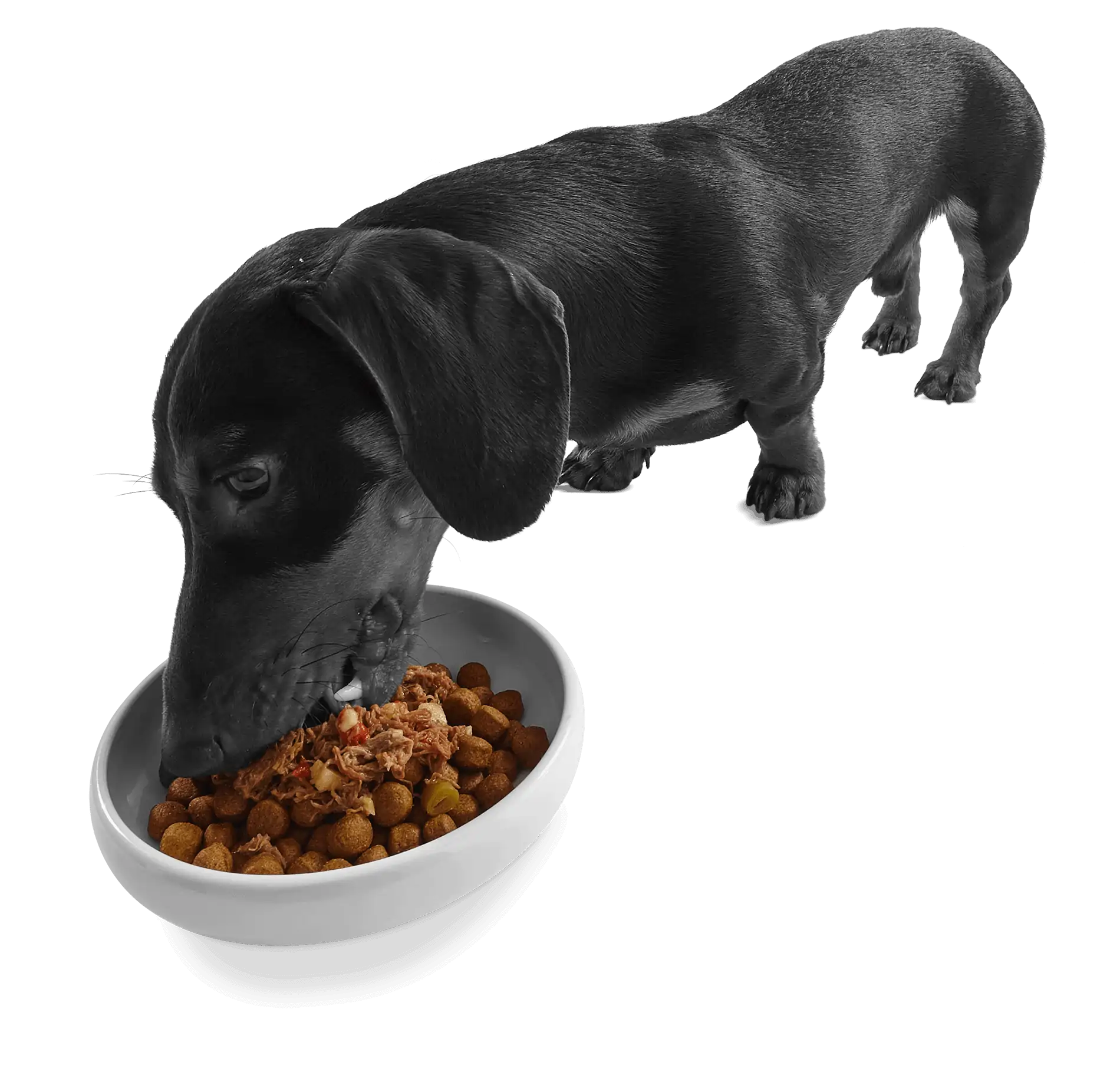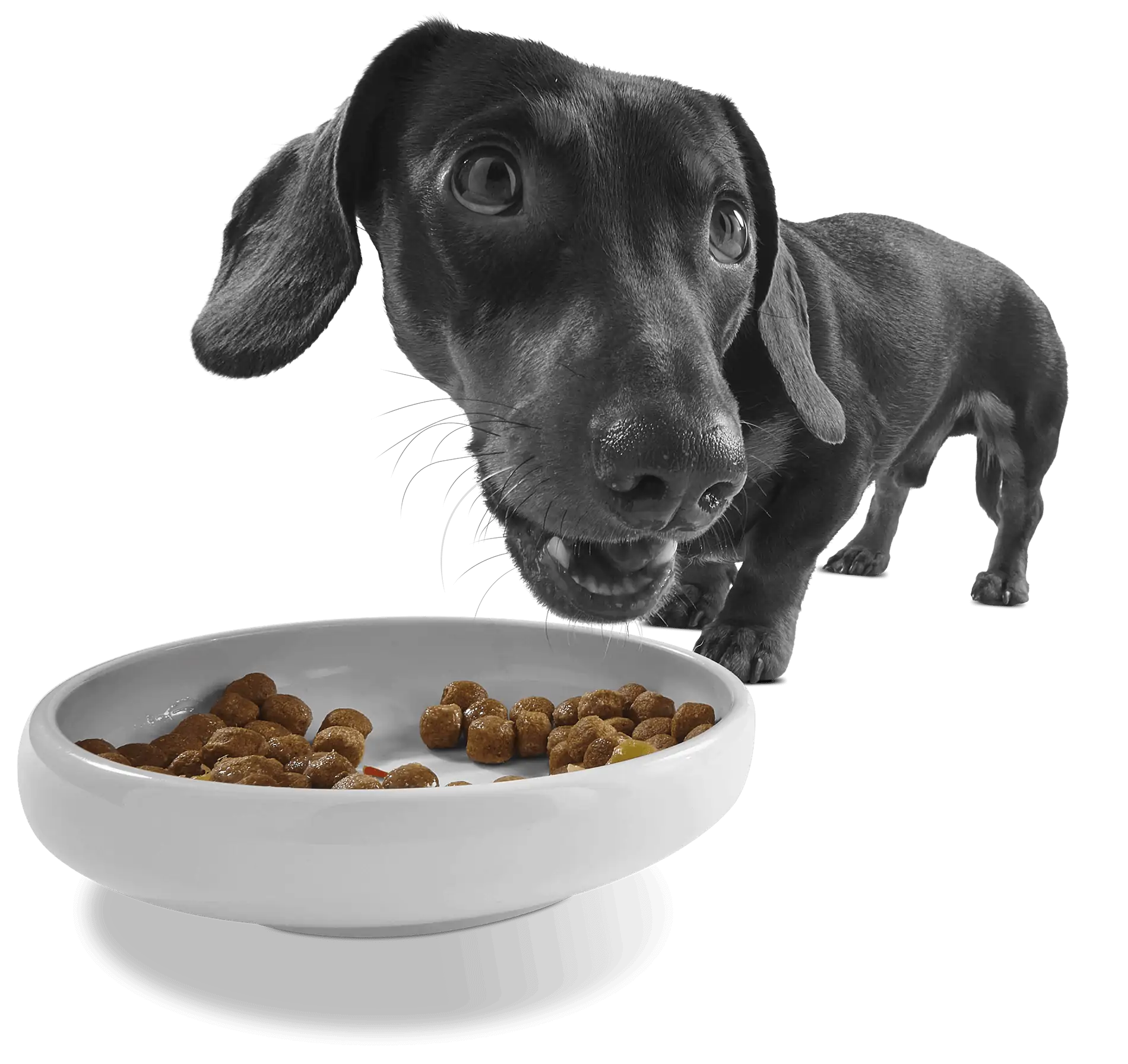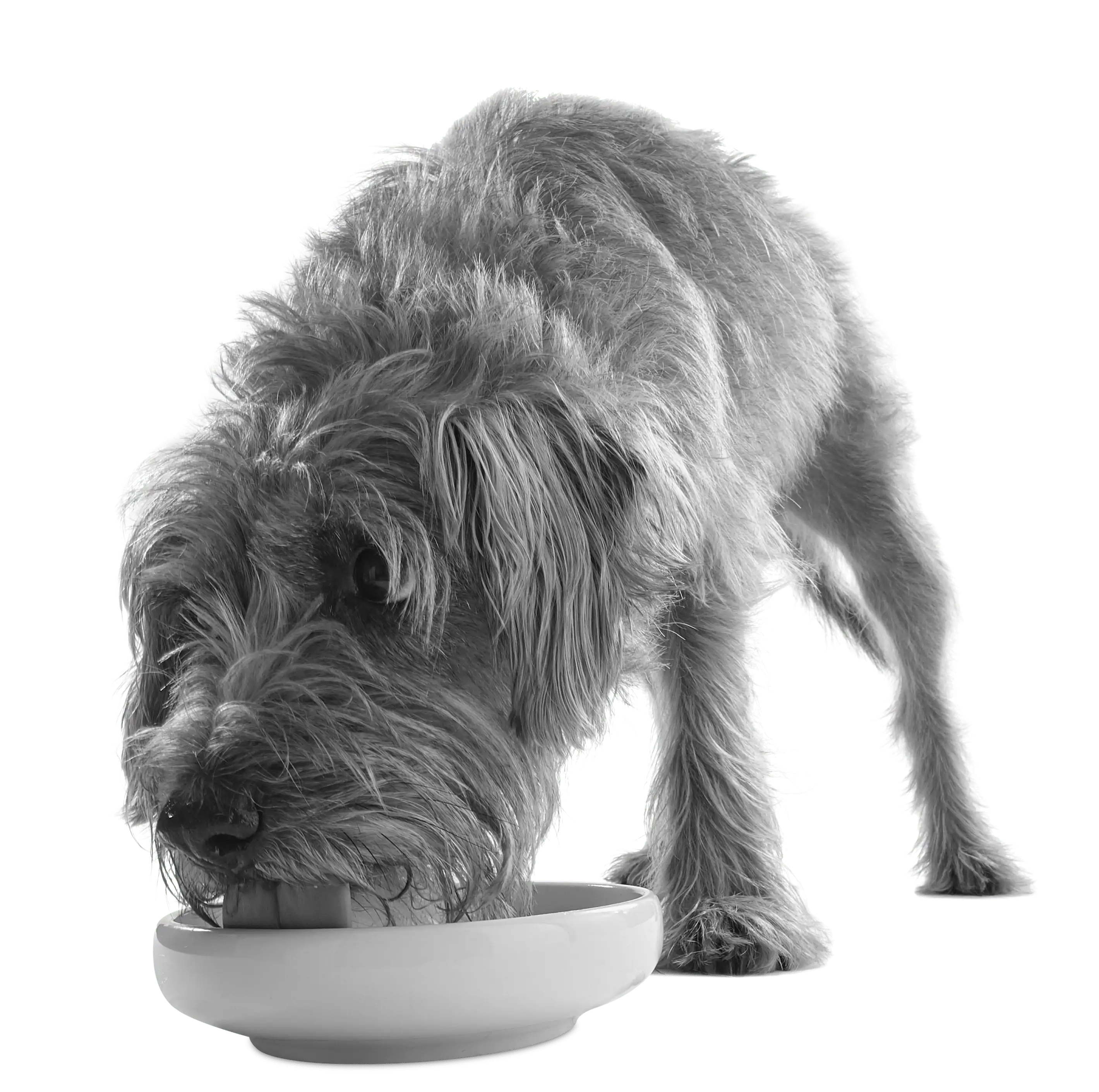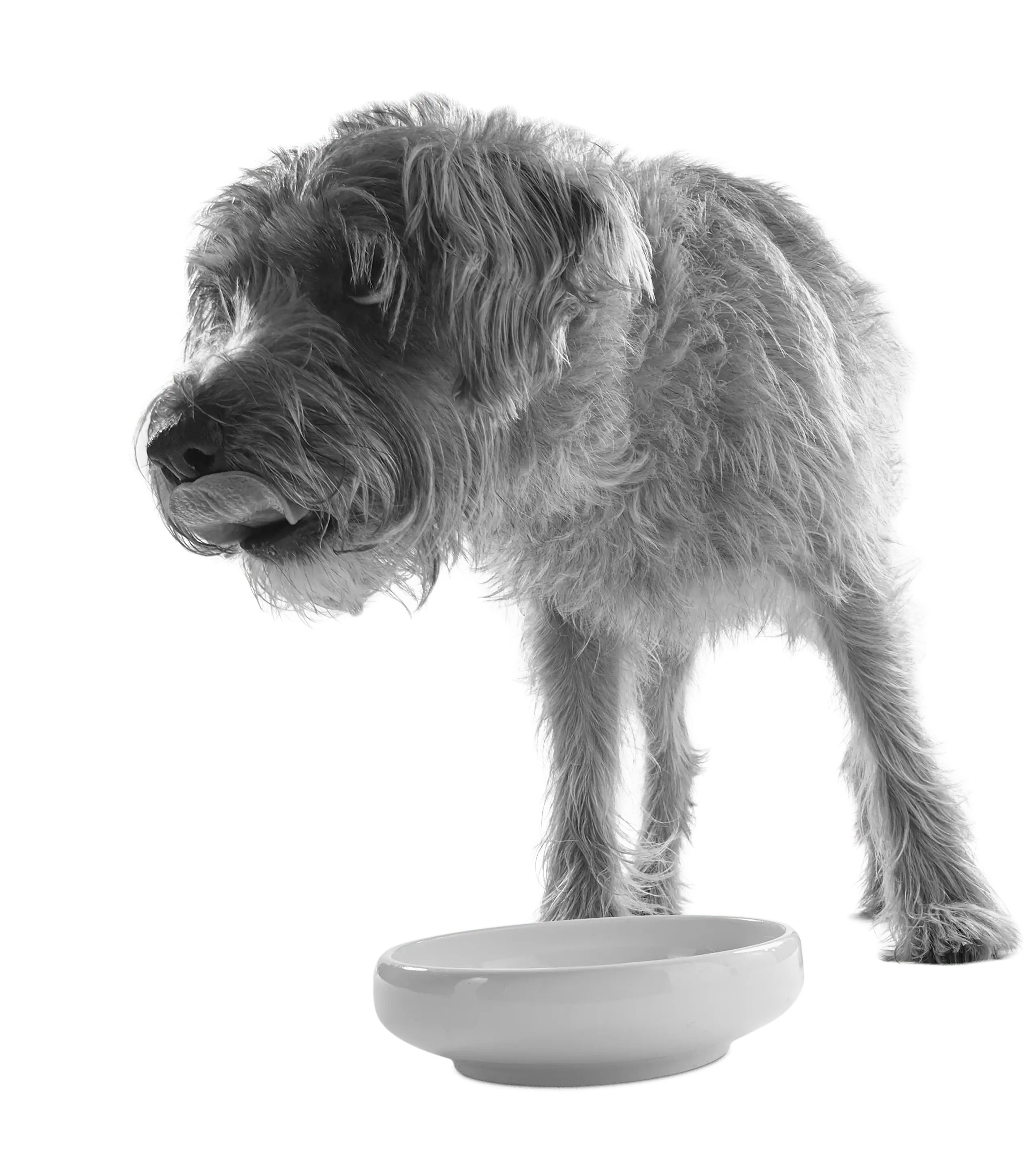We may not be able to teach an old dog new tricks, but we can certainly teach them new eating habits.
As dogs grow older, the way we look after them inevitably changes.
They’re still the same fun, loveable, loyal companions they’ve always been, but the word ‘fetch’ maybe doesn’t bring the same enthusiastic response it once did.
Our senior dogs are definitely in need of a little extra tender, loving, care. And changing up their diet is a great way of keeping that spring in their step.
What is the best diet for an older dog to have?
A well-balanced diet is important throughout a dog’s lifetime.
However, age brings with it extra challenges – don’t we just know it – such as reduced mobility, a slow-moving metabolism, and a propensity for picking up illnesses.
Generally, senior dogs will benefit from a high protein diet, rich in fiber, and boasting essential fatty acids and antioxidants.
As ever, there’s no one-size-fits-all approach when it comes to a diet, but here are a few ‘foods for thought’ when you’re looking to change up your four-legged friend’s mealtimes.
Recommended foods for older dogs
Chicken & Turkey
Lean meat, high in protein. Upping protein levels can help maintain body weight and muscle mass.
Green Beans & Pumpkin
Fiber-rich so aids digestion. Valuable foods for senior dogs who may struggle with constipation.
Fish Protein
Easily digestible and is also a great source of omega-3 fatty acids. These can act as an anti-inflammatory and increase joint mobility.
Carrots
Low-calorie, low-fat so ideal for obesity-threatened less active dogs. The beta-carotene antioxidant present helps maintain eyesight.
Sweet potatoes
Loaded with nutrients, sweet potato contains vitamins C and A, along with other antioxidants that offer an immune system boost. Mashed sweet potato is also suitable for senior dogs who may have dental issues.
Turmeric
Turmeric, renowned for its anti-inflammatory properties, is being added more and more to the diets of dogs suffering from stiff joints or arthritis.
Apples
Excellent source of vitamins A, C, fiber and antioxidants. Apples are also low in fat making them an ideal snack.
Why a change in diet is important
Nutritional needs and eating habits evolve with age.
As dogs grow older and their energy levels reduce, there can be a tendency for weight gain compounded by a drop in muscle mass.
Protein is vital at all stages of a dog’s life, but even more essential when entering his or her golden years.
Referencing Wannemacher R, McCoy J. Determination of optimal dietary protein requirements in young and old dogs, Today’s Veterinary Practice states: “Senior dogs have nearly double the protein turnover of younger dogs and may require increased dietary protein due to decreased muscle anabolism and, perhaps, decreased protein digestibility or conversion.”
Increasing a dog’s protein intake later on in life will help offset the loss of lean muscle mass while ensuring weight remains at a healthy level.
A high-fiber diet has also been shown to help with obesity in dogs.
In the Effects of Dietary Fiber Content on Satiety in Dogs study, the conclusion reads: “…with no enforced limits on consumption of the afternoon meal, dogs fed the high fiber food consumed fewer calories each day than dogs fed the low fiber food. This suggests that fiber does provide a satiety effect in dogs, and that high fiber diets should be useful in controlling calorie intake, such as in the management or prevention of obesity.”
With older dogs also more likely to develop constipation due to decreased bowel activity, fiber-rich foods like carrots, pumpkins and green beans are all excellent stomach soothers.
Foods containing antioxidants (beta-carotene, vitamin C, and vitamin E) should definitely be taken into account when working on your elderly dog’s diet. All these help strengthen the immune system, helping ward off a number of age-related ailments.
Another common concern for owners and their older dogs is reduced appetite. Changing a diet can help reignite their love for food.
However, if you don’t want to mess too much with mealtime, Applaws Taste Toppers are nutrient-dense flavor enhancers that will liven up dry food, and get your dog’s taste buds tingling..
Like humans, eating the same thing every day is boring…Taste Toppers are designed to add more variety and interest
Whenever changing a dog’s diet, the process should always be gradual in order to give time for them to adjust.
